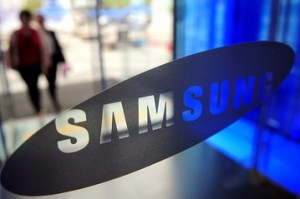Samsung’s recent licensing of 64-bit processor designs from ARM suggests that the chip maker may expand from smartphones and tablets into the server market, analysts said this week.
Samsung last week licensed ARM’s first 64-bit Cortex-A57 and Cortex-A53 processors, a sign the chip maker is preparing the groundwork to develop 64-bit chips for low-power servers, analysts said.
The faster 64-bit processors will appear in servers, high-end smartphones and tablets, and offer better performance-per-watt than ARM’s current 32-bit processors, which haven’t been able to expand beyond embedded and mobile devices. The first servers with 64-bit ARM processors are expected to become available in 2014.
Samsung currently develops chips based on ARM processors for devices like the Galaxy S III smartphone and Galaxy Note II hybrid device. Samsung’s Google Nexus 10 tablet, which will ship next week, and the latest Chromebooks are the first devices with the Exynos 5 Dual chip, which is based on ARM’s latest Cortex-A15 design. Samsung also uses chips from Intel in PCs.
A Samsung spokeswoman said the company couldn’t talk about its future chip or server plans.
“Samsung is a lead partner of ARM’s new Cortex A50 processors. However, we’re not in a position to comment on our plans for how we’ll use the Cortex A50 as part of our Exynos product family,” said Lisa Warren-Plungy, a Samsung Semiconductor spokeswoman, in an e-mail.
If Samsung decides to develop a server chip, it could be more profitable than smartphone and tablet chips, said Dean McCarron, principal analyst at Mercury Research.
Samsung also makes disk drives, memory and processors and it could do integrated server hardware, McCarron said. Samsung’s memory and DRAM already go into x86 servers, but the company could get a sales boost by supplying server makers with a bundle of server chips with DRAM and other components.
Samsung has hired a lot of chip designers to work in the company’s Austin, Texas facility, said Nathan Brookwood, principal analyst at Insight 64. One of the key hires was Pat Patla, who is involved in server product operations. Patla previously was the general manager and vice president of server processors at Advanced Micro Devices.
“The tea leaves are very much aligned to Samsung doing something around ARM in servers,” Brookwood said.
Power-efficient ARM processors are used in most smartphones and tablets, and there is a growing interest in ARM servers as companies look to cut energy bills in data centres. Some believe that ARM servers can offer a more power-efficient way to run applications like social networking sites and search engines.
A number of IT heavyweights including Facebook, Dell, Hewlett-Packard and Red Hat are backing ARM servers. Dell and Hewlett-Packard currently offer servers based on 32-bit processors for testing purposes only, while companies like Boston and Penguin Computing sell ARM servers commercially.
The rise of ARM is seen as a threat to Intel and Advanced Micro Devices, which supply the x86 chips used in most servers today. The x86 chips are power hungry but considered faster for data-intensive applications such as databases and analytics. Intel will start shipping new low-power Atom chips for servers later this year to tackle ARM’s threat. AMD has said it will offer servers that support both ARM and x86 architectures.
While the hype is heavy, the ARM server infrastructure is highly underdeveloped, analysts said. Current ARM chips with 32-bit addressing are not ready for servers, and issues relate to application compatibility and memory ceiling of 4GB. Chips with 64-bit ARM processors will bring larger memory support, virtualisation and more error correction features considered important in servers.
The success of ARM in servers also lies on software support, said Mercury Research’s McCarron. Many of the popular Linux builds in the future will support the 64-bit ARM instruction set, so the software development effort is well underway, McCarron said.
At last week’s TechCon, Oracle, Cloudera and Citrix also announced plans to develop software for 64-bit ARM hardware.
Samsung’s likely competitors will include Calxeda, Nvidia and AMD, which plan to offer 64-bit processors for servers. While Calxeda and AMD plan to incorporate proprietary networking and storage fabric to provide a highly integrated server chip, Samsung’s approach will be more like Marvell, meaning it may offer a lower-cost commodity server chip by not integrating the fabric, Brookwood said.
But the analysts agreed that entering the server chip business could help Samsung.
“It’s a lucrative market,” McCarron said.






